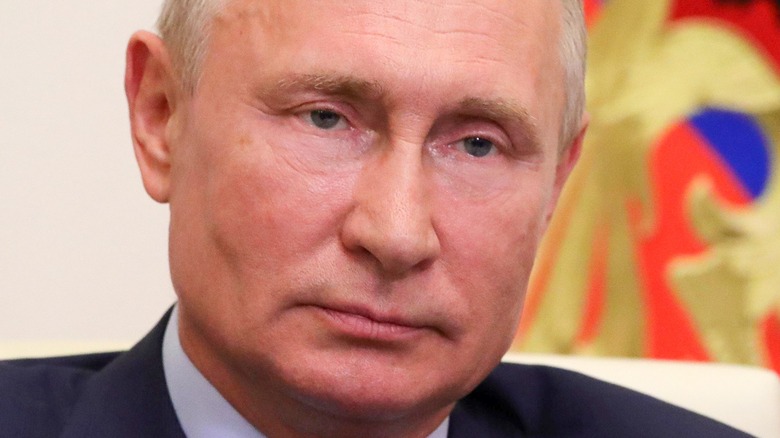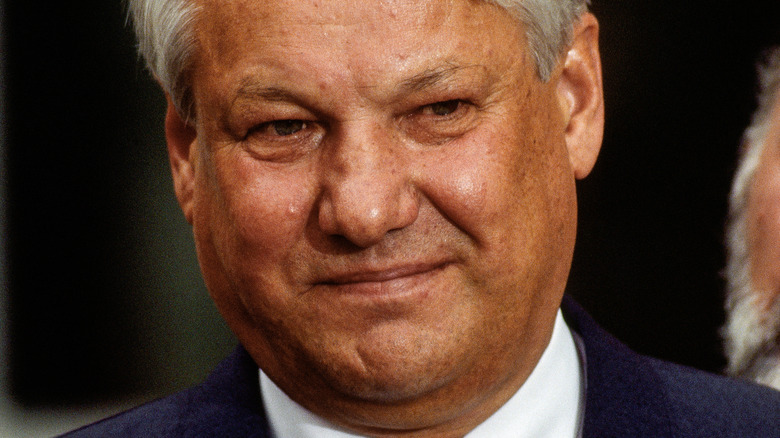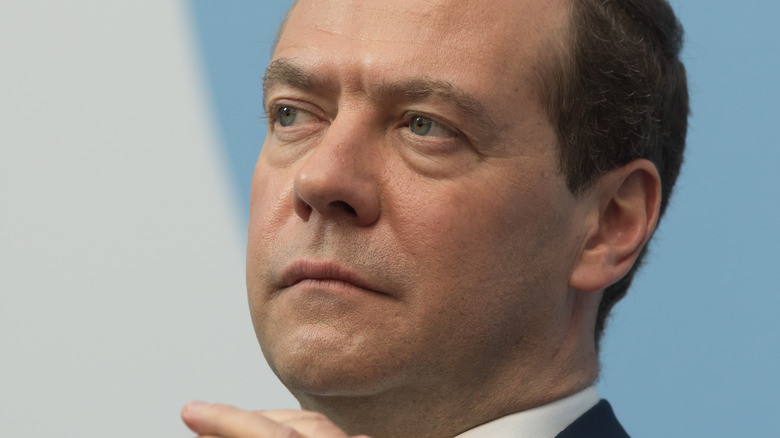The Only Presidents Russia Has Ever Had
Since the dissolution of the Soviet Union on December 31, 1991, the Russian Federation, a market economy and (theoretically) a democracy, was put in its place. While the change was cheered in most of the Western world, especially as it heralded the end of the Cold War, the abrupt change was chaotic, and resulted in the economic collapse of the country — in 1991 alone, the GDP fell by ⅙, according to Britannica, and basic goods were unavailable at grocery stores. It was in this apocalyptic atmosphere that Boris Yeltsin, the first president of Russia, took power.
There have only been two presidents since Yeltsin — Vladimir Putin and Dmitry Medvedev — and though Russia's economy recovered beginning in the 2000s, a 2019 Pew Research survey of Russians found that a majority believed the standard of living has fallen since the collapse of the Soviet Union. Still, Putin, the current president of Russia, enjoys high approval ratings, according to the Russian polling outlet Levada Center. This may be due to a perception that Putin is a strong leader in the midst of the often chaotic politics of post-Soviet Russia (per NPR).
Boris Yeltsin's presidency
During the collapse of the Soviet Union, Mikhail Gorbachev, the final Soviet leader, launched a referendum that asked Russians if they wanted a directly elected president, according to Britannica. They voted in favor of the proposal, and Yeltsin, an increasingly anti-Communist politician by this time, was elected.
Though he was ushered in on a wave of optimism, Yeltsin's presidency was marked by a large economic downturn that led to his eventual rock-bottom unpopularity. Transitioning from a centrally planned economy to a market economy was fraught: removing price controls caused inflation, and the privatization of government-owned businesses brought claims of corruption and favoritism. Moreover, the government had previously provided social services that collapsed as privatization spread, leading to reduced living standards.
In 1999, Yeltsin selected Putin, the head of a successor organization to the KGB, to be his prime minister. At the end of the year, Yeltsin resigned, and Putin became the acting president, a role to which he was first elected the following year. In this way, Yeltsin managed to pick his successor.
Vladimir Putin and Dmitry Medvedev
Despite his connection to Yeltsin, Putin was a popular president from the beginning, according to Britannica. As prime minister, he launched a successful military action against Chechnya, which had been claimed by separatists in the '90s. As president, he supported a robust and militaristic foreign policy, which included further presence in Chechnya; partnerships with China, India, and Iran; and made successful economic reforms, especially in expanding Russia's export of fossil fuels and weapons. Though this increasingly stabilized the Russian economy, Putin also restricted democratic rights, in particular targeting journalists.
Still, Putin enjoyed consistently high popularity. He was reelected in 2004, and when he reached his term limit in 2007, he supported Dmitry Medvedev as his successor. Medvedev would appoint Putin as prime minister in return. Medvedev was then elected, in a process many outside observers said was undemocratic.
Medvedev's short term as president came to an end in 2012, when he announced that he would serve as prime minister and Putin as president once again. Putin was elected to a third term in March 2012 and has spent his renewed time in office expanding his power on the world stage, including through the invasion of the territory of Crimea in 2014. In 2021, Putin signed into law constitutional amendments that could possibly extend his presidency to 2036, per The Guardian.


